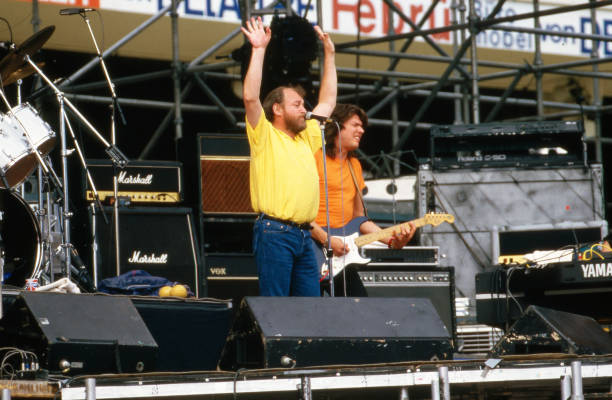Delta Lady
Joe Cocker’s first big hit – after four years of trying – came when he took With a Little Help From My Friends to No 1 in the UK in 1968. Far better, though, was this single from the following year, his version of Leon Russell’s Delta Lady. And far better than that was the live version, recorded for his Mad Dogs and Englishman live album. At this point, Cocker’s sound was a delightful amalgam of rock and soul and blues, a stew that he arguably practised better than likeminded contemporaries such as Derek and the Dominoes (members of whom played with him at this time) or Traffic.
Feelin’ Alright
Talking of Traffic, here’s Cocker’s 1969 take on the song Dave Mason had written for Traffic’s self-titled album of the previous year. Cocker may never have been much of a songwriter (though some of his efforts, like the single Marjorine, have a definite charm to them) but like his contemporary Rod Stewart he was an excellent judge of a song. The early Cocker albums – this track opened his first album – are filled with top-notch interpretations. Where one might expect songs topped with such a gravelly yowl of a voice to tend towards the stiff, Cocker’s arrangements were almost always fantastic, too – danceable and tough, a combination that’s hard to pull off. It helped, of course, that in these days he was backed by fabulous bands: this debut album features the likes of Jimmy Page, Steve Winwood, Carol Kaye, Henry McCullough and Brenda Holloway.
Cry Me a River
Maybe it’s the current unfashionability of live albums that means the 1970 set Mad Dogs & Englishmen is rarely listed in classic album rundowns: it’s sad, because it’s clear that the stage – especially with this astonishing band – is where Cocker was at his very strongest, with musicians absolutely cutting loose, and his own voice taking flight over them. That gift for song selection and arrangement (helped by Leon Russell) is evident here, in a version of Cry Me a River that is all but unrecognisable from Julie London’s hit version – there’s no cool jazz here, but a barnstorming boogie. Mad Dogs & Englishmen would prove to be something it was impossible for Cocker to top, not just because of its brilliance, but also because of the lifestyle Cocker adopted on the road. Just when he really should have been building on that momentum, his career stalled. There was no new studio album till 1972, then a run of less and less successful records between 1974 and 1978. “It all started off like fairyland in the late 60s,” he told me in January 2013, “but by about 71 I was heavily drinking and I didn’t follow through in stuff. Anything businesslike I didn’t want to know. So in many ways it was my own fault I went into that decline.”
You Are So Beautiful
The hit single from 1974’s album I Can Stand a Little Pain showed the way Cocker would remain in the public eye henceforth – with big ballads that showed off his voice. Cocker’s reading of the song written by Billy Preston, Bruce Fisher and Dennis Wilson slows it right down: in fact, there’s barely a song there, just a mournfully repeated refrain that teeters on the edge of lachrymose, held in check by a performance of beautiful restraint from Cocker, his voice catching at the edges, especially when he ascends into falsetto – a trick he could easily have overplayed but uses sparingly. It’s one of those songs that could be a horrorshow of schmaltz, but sheer force of will keeps it on the rails, rendering it beautiful.
You Can Leave Your Hat On
There are two 80s movie tie-in hits, and we’ll plump for this – as featured in 9½ Weeks rather than Up Where We Belong, the duet with Jennifer Warnes from An Officer and a Gentleman – a song Cocker told me he “hated when I first heard it”. This one, he called the “stripper’s anthem”. And if 80s productions – all bright and shiny, buffed and sheened – don’t suit Cocker’s voice the way the early 1970s bands did, then there’s an easy charm to this performance of the Randy Newman song. He never quite made singing sound effortless, but Joe Cocker did make being Sheffield’s greatest bluesman sound easy.



